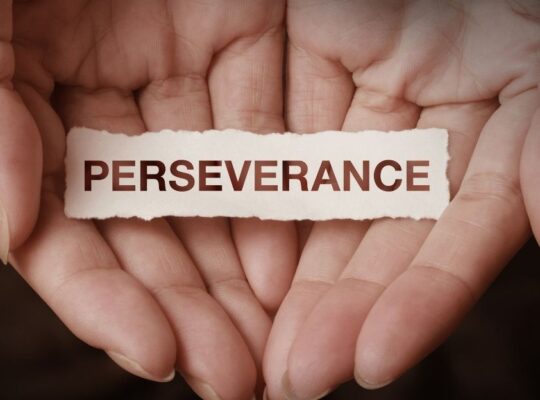No matter what it is you are trying to achieve in life, nothing will ever come easily. There will be many obstacles on your path to success or fulfillment, and only when you learn how to identify, plan for, and overcome these obstacles can you hope to reach your ultimate finish line.
Are you tired of feeling like every bump in the road derails your efforts to change your life? Then this is the guide for you!
The key to overcoming obstacles is to be prepared for them, to have the right mindset about them, and to have a plan that makes it more likely you will overcome them.
Below, we share all that information and much more to help you learn how to stop allowing the obstacles and setbacks in life from enabling you to achieve your dreams.
Understanding The Obstacles You May Face
Once you have set your goal and planned for how you will reach it, it should seem like a straight to success, right? Unfortunately, life is what happens while you are busy making other plans, right? There will be setbacks, delays, and possibly even failures on your path to success. There is no doubt about that. And the first step in learning to persevere and push on to overcome these is knowing what types of struggles you are most likely to face.
There are three broad categories that can encompass nearly all the barriers you might face on your road to success. Some are within your control, and others are not. Knowing what type of obstacles you are likely to face can help you consider how you will handle them ahead of time, allow you to avoid those that are within your control, and give you the advanced knowledge of knowing about and preparing for those that are not.
Personal Hurdles
Even when you are fully committed to your goal and want to succeed with all your heart, your own mind and behavior can get in the way. You already have hurtful and unhealthy habits, mindsets, and beliefs that can rear their ugly heads without warning and send you careening off course on your path to happiness.
There are many personal hindrances that can prevent you from achieving your dream. You may lack enough knowledge or skills, you may not have the right mindset or passion for reaching your goal, or you might be too full of uncertainty or fear to keep going when things get hard. Your own sense of self-worth will play a significant role in your resilience when it comes to overcoming obstacles.
Our thoughts are guided by our past experiences, beliefs, and values. We interpret events and others’ actions, as well as our own chances of success, through a lens that is clouded and distorted by all that you know and have experienced. And this happens without you even being aware of it. So, you may look at a minor roadblock and see total failure because of past disappointments. You may interpret others’ behaviors as negative when they are only trying to help you. Knowing that your thoughts can become distorted is helpful, as it can allow you to slow down, look for alternative perspectives, and reconsider your initial judgments, thus preventing self-sabotage.
Being aware of specific behaviors that show you are the one getting in your own way is helpful, too. For example, if you are someone who consistently procrastinates or is disorganized, then you may be affecting your own chances of success.
Other behaviors to watch for include perfectionism, negative thinking, blaming others or making excuses, complaining, and not accepting responsibility. These are ways that our minds justify our lack of success and self-discipline to stick with it, even when it gets hard.
Think about a time in the past when you have failed to reach a goal that you set. What are some of the obstacles that you placed in your own way that possibly prevented you from achieving your aim? What personal hindrances are you putting in your path to happiness? And what are some of the triggers for these behaviors?
Knowing how you are preventing your own success is essential, but then you must devise a plan to change these behaviors, mindsets, and beliefs, or they will just continue to make you falter. Working through your personal issues, overcoming your fears, and learning to trust and love yourself are all critical components of achieving your goals.
Social Obstructions
No person can achieve success and true happiness on their own. You need the help, support, and skills of other people to help you reach your dreams. But there are unfortunately many things that other people will do to slow you down, push you off course, or otherwise interfere with your path to fulfillment. These are social obstacles.
In this case, there is much you can do to prevent social obstacles from getting in your way. While you certainly cannot control other people’s behavior or thoughts, you can control two critical things. One is how you react to those people, and the other is how much control and influence you allow them to have in your life.
Surrounding yourself with positive and helpful people is essential to achieving your dreams. If there are people in your life who bring you down, actively work against you or are not supportive of your goals, then you need to either cut them out of your circle or limit your exposure to them as much as possible.
It is not always possible to completely ignore someone (especially a coworker or family member), so if you can’t remove them from your sphere of influence, you can limit how much you think about them or allow them to influence your feelings or behaviors. Focus instead on those people in your life who actively support you as well as building new relationships that can help you achieve your dreams.
We all need confidants, mentors, teachers, guides, and cheerleaders along our path to success. Consider who in your life serves in these positive roles and who does not. This can help you overcome any social obstacles you may face.
Life’s Roadblocks
The final category of obstacles that can influence your chances of success are all those circumstances and conditions that life throws your way and over which you generally have very little control. These are obstacles that we usually do not expect and, most of the time we are not adequately prepared to handle them when they present themselves.
Learning to be a proactive thinker and problem-solver can help you be as prepared as possible for these types of obstacles, as can having the right mindset for how to handle these types of hindrances.
While you can’t be prepared for every contingency that might happen, you can have a plan for a few of the bad things that could happen. Thinking through your plan for success and finding possible hindrances, then developing a plan for how to tackle those, will leave you with options when had things do arise.
Devising contingency plans and having backups is always a smart move and can prevent lots of life’s emergencies from throwing you into a tailspin.
It is always important to think carefully about a new circumstance or situation to see if it really is as bad as you think, too. Often, when the unexpected happens, we immediately panic and go into a negative mode. But, if you stop and truly consider the consequences of this circumstance, it is often much easier to handle than you first perceived, too.
Being a proactive problem solver involves having insight into your own capabilities, using logic and reason to think through the possible problems, and having the right mindset to overcome those things that are just out of your control.
Change Your Perception To Better Overcome Landmines
How you perceive obstacles has a lot to do with how well you will be able to overcome them (or not). When you see all setbacks as negative, you are much more likely to be completely shut down by even minor issues. But, when you perceive all experiences in life as opportunities to learn, grow, and solve new problems, you have set yourself up for success instead of failure.
How you view a setback or stumble will have an enormous effect on whether you overcome that hurdle to succeed ultimately. If you see every setback as a failure, you will fail. If you see delays as evidence that the world is against you, then your emotions will likely take over and prevent you from moving forward. In other words, what you perceive is most likely what will come to be.
So, how do you change your perceptions of obstacles? How do you stop allowing your emotions to drive your motivation and resilience and start using your thoughts and problem-solving skills instead?
While it is true that not all obstacles can be overcome, it is true that there are often many more alternatives than you consider or attempt, and that you allow your emotional brain to tell you it is time to give up. You must engage in thoughtful consideration before you decide to stop trying, though, and here are a few suggestions that might help you do just that.
- Try the STOP technique. Stop what you are doing and thinking. Take a step back to consider your problem from all angles. Observe your emotions carefully as well as the situation at hand. Proceed mindfully, knowing that your feelings may be clouding your judgment. This technique gives you time to separate yourself from your emotions, calm down, and observe your situation with a cooler mind.
- Learn to accept that hardships will happen, no matter what. Learning to admit that your road will not be easy is often enough to help you continue onward when the going gets tough. Struggle is just a part of the journey. If you are not struggling yet, you will be. That is just how it goes. Once you accept this reality, it becomes easier to address stumbles when they happen.
- Learn to experiences your emotions without allowing them to control you. It is okay to feel disappointment or fear when the unexpected happens. That is normal, and no one is saying you have to turn into a robot in order to achieve your dreams. But it is crucial that you learn to deal with your emotions healthily so that you can move on from them productively. Take time to handle your feelings, then go ahead with more logical thinking.
- Consider other ways to achieve the same goal. Often, we get so excited about fulfilling a dream that we lose sight of the fact that there may be more than one way to realize it. If one path becomes wholly blocked, being open to alternative routes to the same end will help you find happiness in the end, even if it is not how you initially thought you would get there.
19 Strategies For Overcoming Obstacles To Achieve Your Goals
Using the following strategies and techniques can help you learn to handle all the circumstances and setbacks that life has in store for you. And when you are better equipped to deal with these hurdles, you are much more likely to be able to keep moving forward, despite these setbacks. When used strategically, these techniques can help you achieve your dreams.
1| Understand Your Barriers
If you want to understand how to get past an obstacle, you need to first understand how it arrived in your life. When you are presented with a challenge, you need to ask yourself what could have caused it, what might have gone wrong to cause this circumstance, and what needs to happen to get past it. You can’t make a sound judgment about how to move forward until you accurately understand the problem.
2| Brainstorm Many Solutions
When we are presented with a problem, it is often easy to reach for the easiest solution and move forward. But that may not always be the best solution. Do not allow your perspective to be limited by what has worked in the past or your own fear of the challenge. Take time to consider many possible options for how best to proceed.
Exploring all possible scenarios thoroughly can alert you to potential pitfalls if you go down one path or another, and it can allow you to make a more logical and less emotional decision. The more options you consider, the more likely you are to find the best solution for your needs.
3| Look for Meaning in Your Challenge
While you may immediately wish to solve whatever problem is presenting itself to you and move on, it is sometimes important to look for the meaning in your present circumstance to fully grasp and understand it. Hardships are learning experiences and facing the lesson in your situation can teach you a great deal.
When you learn to look for meaning in your obstacles, you can appreciate them on a new level and learn even more for your experiences in overcoming them.
4| Focus on Incremental Change
When problems are big, the best way to handle them is often one step at a time. After all, you can’t accomplish it all at once, so why not take it slowly and carefully, so that you manage your risk and avoid creating even more problems down the road. Break your problem apart into more manageable tasks. Tackle each of these one at a time. Focus on what you can do today to improve your situation.
5| Make Sure You Know Wants Important
Sometimes, what is holding you back from addressing a challenge in your life is that you are not giving your effort the priority it needs. If you have been facing the same problem for a while, or you can’t seem to move past a barrier, ask yourself how important this effort really is to? Is the reason you are stuck because you have placed other things in your life above this goal? Committing yourself to the effort is often enough of a push to get you past the roadblock.
6| Make Sure Your Emotions Aren’t the Driving Force
When you push up against resistance or experience failure along your path to success, your first reaction is likely an emotional response. And while emotions are justifiable and vital, they can’t be what guides your decision making as you consider solutions.
Instead, you need to deal with the feelings, and then use your analytical mind to figure out what to do. Allowing your motion to control your thinking will only make your problems worse or possibly lead to new ones, to watch out for which part of your mind is in control.
7| Set Yourself Up for Success
When you have a problem to solve, it is essential to make sure you have all the tools necessary to guarantee your success. Resources like knowledge, time, support, and skills are important tools for any action plan. If you are missing something, it is crucial you either acquire it yourself or you make sure others are on tap to help you.
8| Ask For Assistance And Advice
When you are trying to tackle a new challenge, your perspective may not be enough to find the right answer. Asking others for guidance or input can often help you develop a better plan of action. When you are close to a problem, it can be hard to see past how it affects you, but others who have more distance from the situation may be able to see solutions you cannot. Getting help and support from others can help you understand the situation differently.
9| Get A Mentor
Mentors are people who have a skill set or experiences that can help you in your present circumstance. If you are trying to learn how to reach a goal, try finding a mentor who has accomplished similar dreams or who has overcome obstacles like yours. They can help coach you when you are struggling and provide you with motivation and advice when you need it most.
10| Learn To React Mindfully
Whether your first reaction to failure or setback is to freak our emotionally or become paralyzed with indecision, neither of these is a productive response or solution. Learning to take a step back, stop, and gain control of yourself before acting is a very helpful tool, regardless of how you first respond.
Mindfulness means being in control of yourself, listening carefully to your thoughts, and focusing on what is essential while pushing away the mental chatter that is not productive. Take a moment to stop and breathe each time you meet trouble, and you will be more level-headed when it is time to decide what to do.
11| Ask Questions
Most of the time, we need to gather a lot more information before we are ready to solve a problem. You need to understand the situation fully, so it is often necessary to ask questions to gather that data. Sometimes, that means asking yourself some important queries, and sometimes you just need to ask others for help. But learning to respond with questions rather than answers can help you devise better solutions to whatever obstacles you are facing.
12| Banish Self-Doubt
To overcome whatever obstacles, you may face in life, you must believe that you can succeed. You must believe in your own ability to persevere and be resilient in the face of adversity. Learning to love and trust yourself, to be confident in your abilities, is crucial to learning to overcome any obstacle in your life. Spend some time working on this vital aspect of your self-esteem every single day, and you will see that you are better able to handle setbacks when they arise.
13| Practice Acceptance
Denial will get you nowhere. While it may see the easy choice to deny what is happening to you or ignore the problems you are facing, it is not an effective way to solve your problems. Denial only helps you ignore possible solutions and answers and cuts you off from opportunities that could be helpful. You must accept your circumstances and learn to face them head on if you want to solve whatever problems you face in life productively.
14| Sacrifice When You Need To
If you are stuck on a solution or having trouble making progress from a setback, it may be necessary to make real changes or sacrifices to move you forward. You may need to let go of some things in your life that are holding you back, say no to other priorities to give your efforts the necessary attention, or sacrifice another goal to achieve this one.
Sacrifice is sometimes required to arrive at something that is very important to you. Ask yourself what you could give up that would help you get where you want to be.
15| Let Setbacks Teach You
What is more important than how many mistakes you make along the way is what you learn from those stumbles. Each challenge, failure, or obstacle teaches you something valuable. Using these lessons moving forward is the most productive and positive way to honor those mistakes and allow them to show you something meaningful. Be sure you are learning from your failures and not just trying to forget them.
16| Remain Calm
Solutions are not created in chaos. They instead arise from calmness. Cultivate clarity of mind can help you remain level-headed in a crisis when you most need to think logically. Tap into your mindfulness training to calm your body and your mind when you need to think clearly and quickly.
17| Embrace Your Personal Power
Solving problems requires a belief in yourself and your ability to succeed. You cannot believe in yourself while you are busy blaming others, making excuses, engaging in negative thoughts, or looking for sympathy for your plight. Instead of worrying about what others think or feeling sorry for yourself, it is important to stand up, embrace the power within yourself, and move forward with purpose and confidence.
18| Celebrate Your Accomplishments
As you work to overcome obstacles, it is essential to recognize and celebrate the victories along your journey. When you can make progress toward your dream, find small solutions that work, and carry out tasks that help you overcome hurdles, it is important to reflect upon these and acknowledge their significance in your journey. And use these achievements as springboards for future effort and solutions, as well.
19| Never Give Up
The surest way to fail is to quit. If you quit when presented with the challenge, it means the obstacle was more important than your dreams. And what could be more important than your dreams? Nothing! Don’t’ give up. Take a break, regroup, and then get back up on that horse to ride again another day.
Final Thoughts
If you are looking to achieve success without obstacles, your goal probably isn’t very worthy to begin with. Challenges are what makes life interesting, what teaches you to grow and become stronger. Obstacles will happen, whether you want them to or not, and it is how you approach them that makes all the difference.
No problem is insurmountable. You just have not arrived at the right solution YET. You may not be ready to tackle a challenge today, but that does not mean you will not be ready tomorrow. The key to solving any problem is to take it one step at a time, control what you can, be prepared for what you can’t, and remain positive in your mindset.
By using these strategies, cultivating a growth mindset, and staying steadfast in your motivation to achieve, you can reach your goals, no matter the roadblocks that stand in your way. Learn from the lessons presents to you, and you will soon find that new challenges do not seem too difficult to face.







